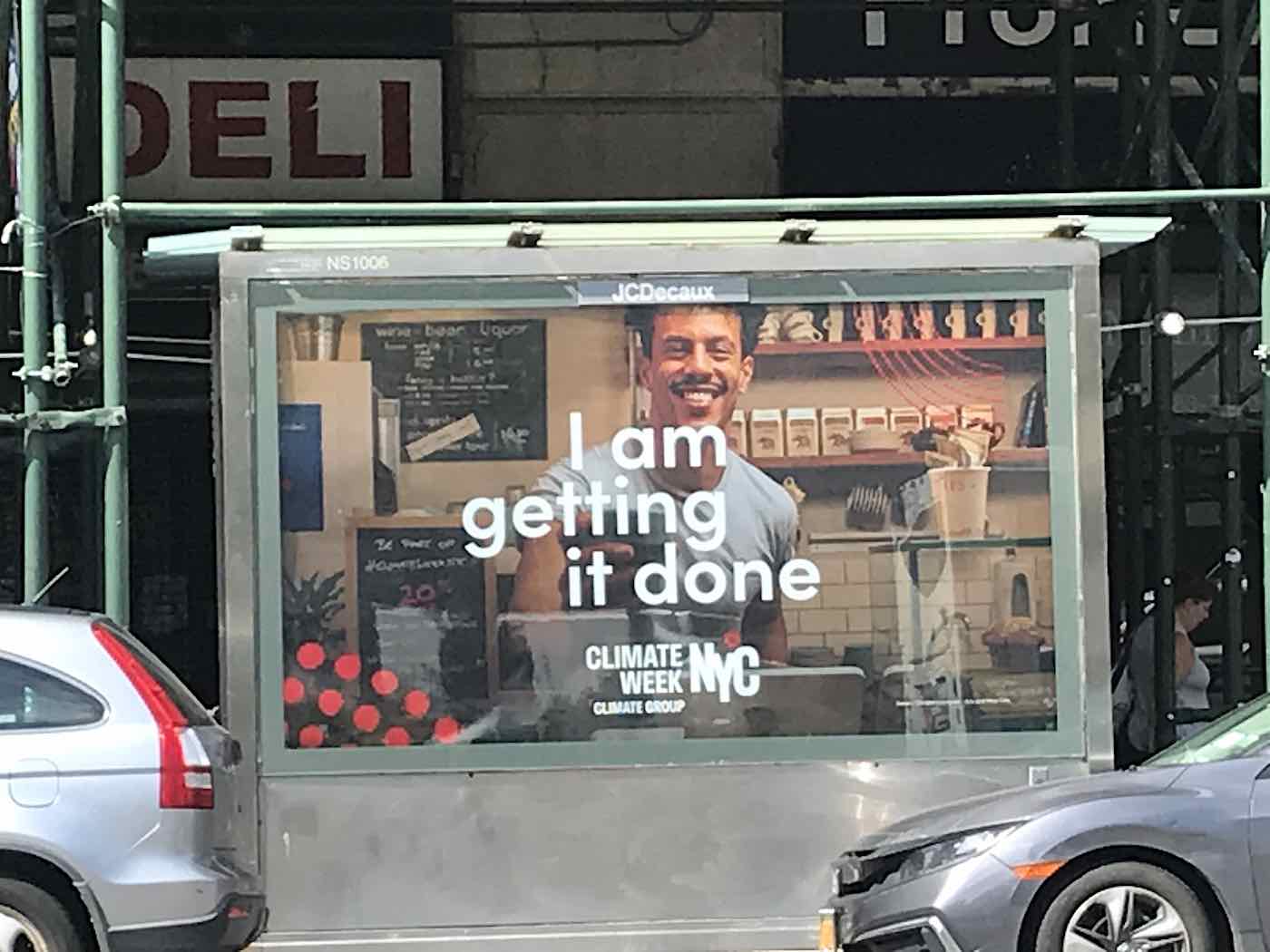ImpactAlpha, Sept. 20 – Climate Week NYC kicks off today with hundreds of sessions meant to showcase climate solutions – and spur action as world leaders descend on New York for a parallel meeting of the United Nations General Assembly.
The week’s admittedly aspirational theme: “Getting it done.”
The series of events is also meant to prod countries ahead of the COP26 global climate summit in Glasgow in November. That conference, a follow-on to the Paris climate agreement, could be a bust if countries don’t put forth more ambitious emissions reduction goals and capital outlays for developing countries to combat climate change.
In the U.S., the $3.5 trillion spending bill critical to the Biden administration’s climate agenda, and his influence with world leaders, hangs in the balance of a senator or two.
The lack of preparedness for climate changes already occurring was tragically on display last month as Hurricane Ida caused more than 115 deaths, including 11 in New York itself as heavy rains flooded subways, roads and basements.
Live from New York
Climate Week, organized by the Climate Group along with the UN, the COP26 Presidency and the City of New York, is a sprawling hybrid affair featuring more than 300 sessions across themes ranging from energy, finance, transportation and the built environment to environmental justice and nature-based solutions.
The opening ceremony, taking place at the Times Center, will feature headliners including White House climate advisor Gina McCarthy, the European Commission’s Ursula von der Leyen, UN special envoy Mark Carney, Generation Investment Managemen’s Al Gore and Alphabet’s Ruth Porat. COP26 president Alok Sharma and newly sworn in governor of New York Kathy Hochul will also attend.
UN Secretary General António Guterres on Monday will implore global leaders to accelerate their climate action. On Wednesday, the UN will host the first Food Systems Summit, and on Thursday, the first “high level dialogue” on clean energy in 40 years.
Expect corporations, investors and government leaders to unveil new initiatives and announcements.
Late-night comedians dedicating their shows to climate change on Wednesday night include Samantha Bee, Jimmy Fallon, Jimmy Kimmel, Trevor Noah and Seth Meyers. Business leaders and investors are expected to trot out new pledges around corporate climate lobbying, aligning portfolios with the goals of the Paris Agreement, and accelerating zero-emission trucks.
Nationally determined contributions
Two reports released last week highlight the challenges. The commitments made by countries that are parties to the Paris Agreement, called “national determined contributions,” or NDCs, are not nearly enough to avert climate catastrophe. A UN report found current plans will raise average global temperature by 2.7 degrees Celsius, or nearly five degrees Fahrenheit, by the end of the century.
That puts the world on what Guterres called “a catastrophic pathway.”
Countries including China, India and Turkey have not yet submitted updated NDCs as required under the Paris accord. Mexico, Russia and Brazil have actually weakened their plans. Greenhouse gas emissions need to fall by 45% by the end of the decade to avert climate catastrophe, the Intergovernmental Panel on Climate Change has warned. Instead, they are poised to rise 16%, according to the U.N ‘s synthesis of nationally determined contributions.
Separately, the Organization for Economic Cooperation and Development warned that rich nations are $20 billion short on their commitment of $100 billion a year to help developing nations transition to a low-carbon economy and adapt for a changing climate. The funding shortfall threatens to undermine global cooperation ahead of COP26, and leaves countries that have contributed little to the climate crisis ill-equipped to deal with it.
Last week, nearly 600 investors with $46 trillion under management urged government leaders to step up their 2030 NDCs ahead of COP26 and lay out detailed plans for a just transition to net-zero emissions by 2050. They also called for specific policies to rein in emissions, including robust carbon pricing and an end to fossil fuel subsidies, thermal coal-based electricity generation, and the construction of new carbon-intensive infrastructure.
The “ambition gap” between current NDCs and the cuts required to limit warming to 1.5 degrees Celsius hampers investors’ “ability to properly allocate the trillions of dollars needed to support the net-zero transition,” they wrote.
Methane pledge
Biden’s signature $3.5 trillion spending plan faces an uphill battle to win over centrist Democrats in a divided Congress. Investors are pushing hard to retain the Clean Electricity Performance Program, which would financially reward power providers that increase the amount of carbon-free electricity they supply each year and penalize those that don’t. The program is key to meeting the administration’s goal of 80% clean electricity generation by 2030.
Other provisions of the bill include funding for green infrastructure, carbon capture and storage technology, and a civilian “climate corps.” Up for discussion: a methane polluter fee and some form of carbon pricing.
One effort that could help: Reducing methane, a potent greenhouse gas that is 25 times more warming than CO2 but shorter-lived, can help stave off global warming this decade. President Biden last week convened a climate summit and, with the European Union, launched a Global Methane Pledge to slash global methane emissions from fossil fuels, agriculture and landfills, by close to one-third by 2030. The IPCC highlighted the role of methane, which it said accounts for about half of the 1.0 degree Celsius net rise in average global temperature since the pre-industrial era.
“Reducing methane emissions is the single most important tool we have to prevent warming in the near-term,” said Ceres’ Andrew Logan.











